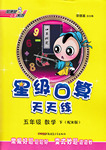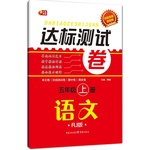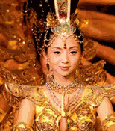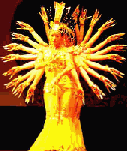题目内容
阅读下面短文,从A、B、C、D四个选项中,选出最佳答案,完成所给句子。
Mr Brown, a teacher in a Primary school(小学) often dozed off in class. But he didn't want his pupils to do that.
One day, he again dozed off in class. When he woke up, one of the boys, Tom, asked him, "Why did you doze off in class just now, dear sir?"'
Mr Brown's face turned red.“ I... I was invited to visit Sungod(太阳神) in my dream(梦),” he said.
Tom seemed to say something, but he kept silent.
The next day, Tom also “dozed off” in class. When the teacher saw this, he woke Tom up and asked him,“Why did you doze off in class, Tom?”
Tom answered with a smile,“ I was asked to visit Sungod, too.”
The teacher got angry and asked him, “What did he say to you, then?”
“He told me he didn't see you yesterday.”
1. From the story we know that ______ .
[ ]
A. Tom was an honest pupil
B. Tom liked to ask questions
C. Tom was very clever
D. Tom didn't study hard in class
2. In class Mr Brown________ .
[ ]
A. was strict with his pupils
B. often felt half asleep
C. wanted his pupils to keep silent
D. was invited to visit Sungod
3. After Tom heard Mr Brown's answer, he didn't say anything because_______ .
[ ]
A. Tom believed his teacher had visited Sungod
B. Tom was afraid of his teacher
C. Tom had a good idea
D. Tom thought what his teacher said was right
4. The next day Tom _______ in class.
[ ]
A. really dozed off
B. pretended(假装) to be asleep
C. fell sick
D. felt sorry for what he' d done
5. What Tom said meant ______ .
[ ]
A. Sungod didn't see his teacher yesterday
B. Sungod was angry with his teacher
C. his teacher didn't tell the truth
D. Tom also wanted to doze off in class like his teacher.

 星级口算天天练系列答案
星级口算天天练系列答案 芒果教辅达标测试卷系列答案
芒果教辅达标测试卷系列答案完形填空
阅读下面短文,从A、B、C、D中选出能填入文中相应空白处的最佳答案

Many people could not forget the beautiful dance during the CCTV Spring Festival Gala (晚会). The dance was performed (表演) by some disabled boys and girls. They can't hear or speak. But their performance is remembered by many people. The lead dancer of the dance is Tai Lihua.
Tai Lihua was born 1 . When she was two years old, she 2 her hearing because of a fever. Not long after that, she became mute (哑的), too. From then on, her world is 3 . But she didn't know this at first. At five years old, when her schoolmates in kindergarten played a game about 4 , she discovered that she was different from the others. She was very 5 about it. Her father went to many places to look for best treatments for her illness. But nothing 6 When she was seven years old, she went to a school for deaf and mute children. In that school, she did well in her 7 . Her teacher said she used her mind more than the others and was good at expressing (表达) her feelings through 8 . She also began to 9 dance and dance became her favorite. She thought she could use dance to express what she thought about life. She worked hard at it and her efforts (努力) made her a very good dancer.

Besides performing in China, Tai Lihua has also been to some other 10 and many foreigners like her style. She now lives a happy life with her family.
|
(1) A.rich |
B.poor |
C.healthy |
D.beautiful |
|
(2) A.lost Mound |
B.found |
C.studied |
D.missed |
|
(3) A.dark |
B.silent |
C.small |
D.noisy |
|
(4) A.sports |
B.pictures |
C.computers |
D.sound |
|
(5) A.happy |
B.sad |
C.glad |
D.excited |
|
(6) A.happened |
B.appeared |
C.came |
D.worked |
|
(7) A.studies |
B.illness |
C.listening |
D.speaking |
|
(8) A.thinking |
B.watching |
C.dance |
D.music |
|
(9) A.love |
B.hate |
C.worry about |
D.think about |
|
(10) A.places |
B.cities |
C.galas |
D.countries |